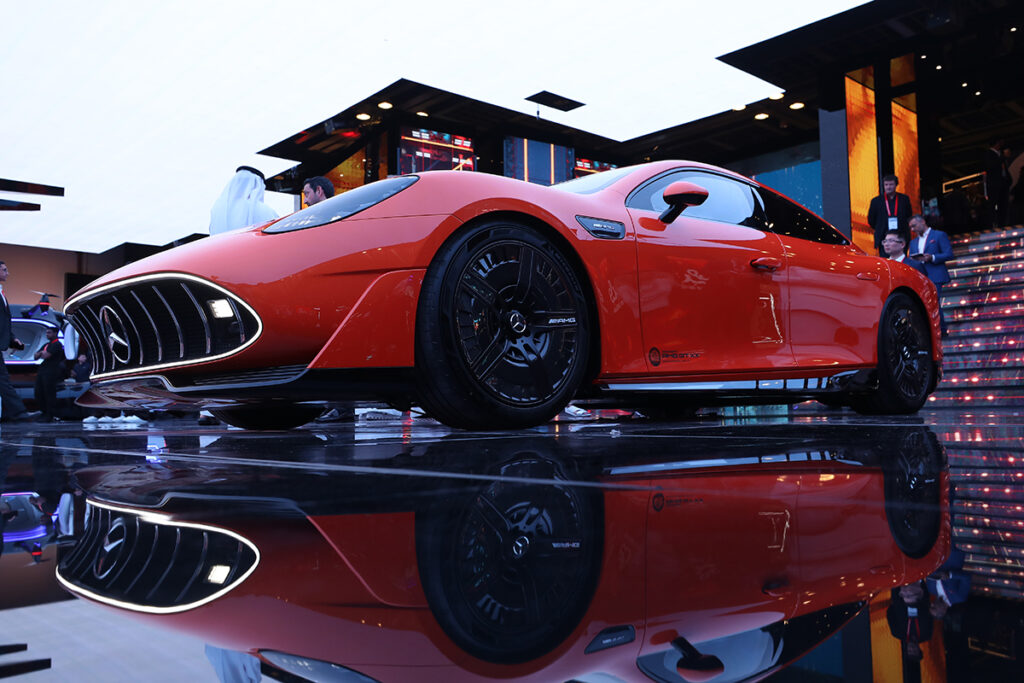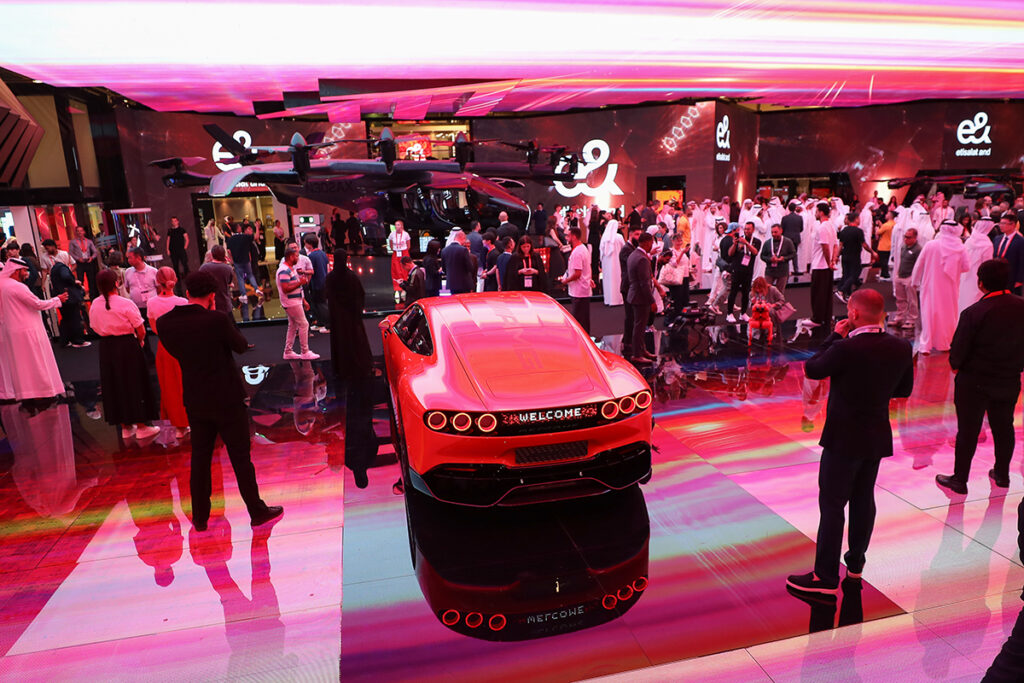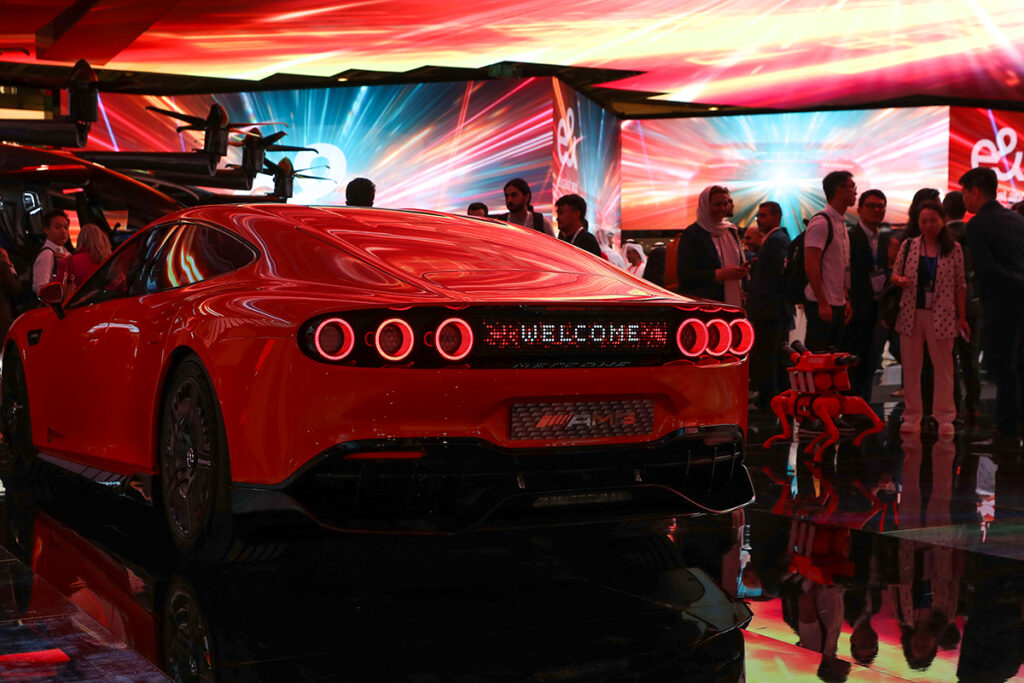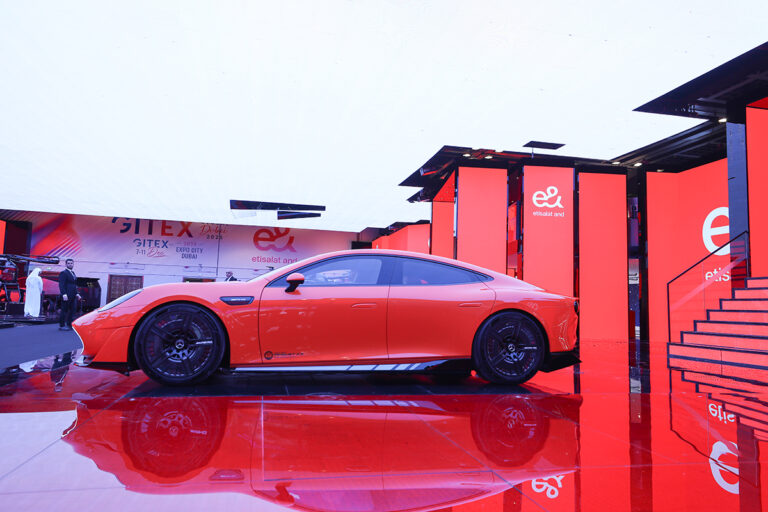Mercedes-Benz has said that growing competition among electric vehicle (EV) makers in the Gulf is good for the industry, as demand for high-end electric models accelerates in the UAE and Saudi Arabia.
Speaking to Arabian Business on the sidelines of GITEX Global 2025, Pablo Souto, Director of Marketing Strategy and Online-to-Offline Integration for Mercedes-Benz Cars Middle East, said the German automaker is “very confident” about the region’s readiness for a new era of performance and electrification.
“Competition is a good thing – it pushes the entire industry forward,” Souto said. “Leadership isn’t won by following trends but by defining them.”
Mercedes welcomes regional EV competition
Souto said Mercedes is “bullish” on the Gulf’s luxury EV segment, noting that both the UAE and Saudi Arabia are leading global adoption rates through government incentives, domestic manufacturing projects, and rapid expansion of charging infrastructure.
According to PwC data cited by Mercedes-Benz, EVs are expected to account for more than 15 per cent of new passenger and light commercial vehicle sales in the UAE by 2030 (equivalent to about 58,000 vehicles), rising to 25 per cent, or roughly 110,000 units, by 2035. The country already has more than 70,000 EVs on its roads. Saudi Arabia aims for 30 per cent of all new vehicles in Riyadh to be electric by 2030, supported by state-led investments in giga-projects, battery plants and public charging networks.
“The appetite for luxury electric vehicles here is real and growing fast,” Souto said. “Buyers in the Gulf are early adopters of innovation. They want reliability, service, and brand trust, not just novelty. We see the mindset shifting from ‘range anxiety’ to ‘experience confidence.’”
Mercedes’ regional strategy focuses on pairing its engineering expertise with local technology partners to support connected, data-driven mobility. The company’s long-standing collaboration with e& enterprise, the digital arm of UAE-based telecom group e&, forms part of that plan by combining 5G connectivity, cloud platforms and real-time data to enable smart charging and predictive maintenance for future electric models.
“Together with e&, we’re developing use cases that show how cars can become part of a larger ecosystem – one that combines mobility, energy, and data,” Souto said.
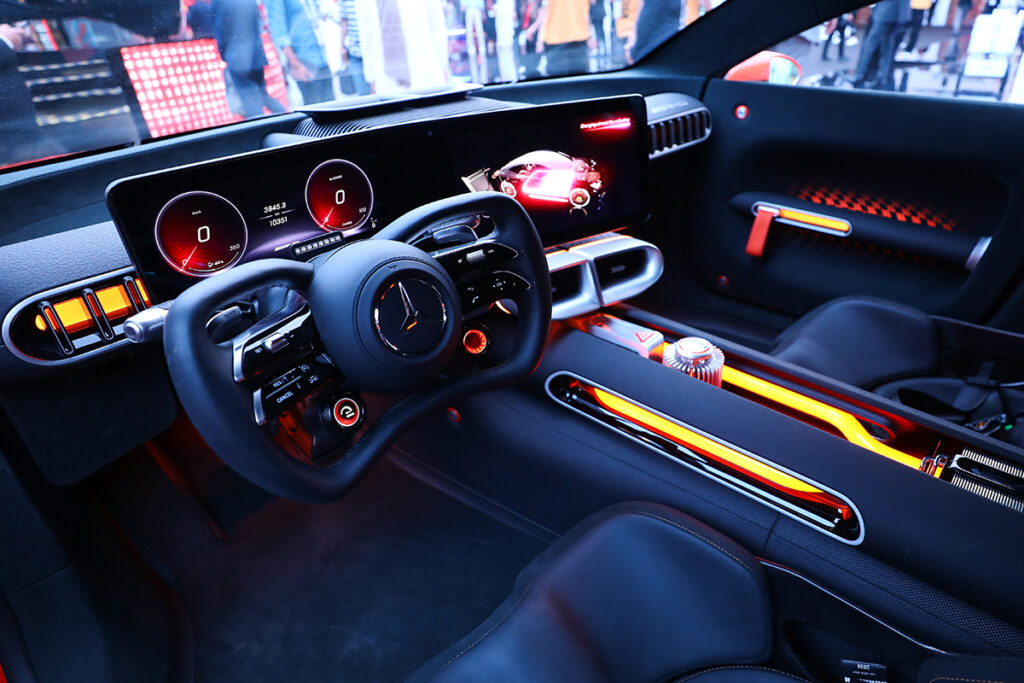
GITEX Global 2025
Mercedes-Benz is showcasing its CONCEPT AMG GT XX at GITEX Global 2025, the world’s largest technology and AI exhibition, held this week at Dubai World Trade Centre. The electric performance prototype made its Middle East debut at the e& enterprise pavilion, underlining the growing convergence between the automotive and telecom sectors.
Unveiled earlier this year in Affalterbach, Germany, the CONCEPT AMG GT XX previews the brand’s next-generation high-performance architecture, AMG.EA, which will underpin future AMG electric models. The car delivers more than 1,000 kW (over 1,300 horsepower) from three axial-flux motors developed with British electric motor specialist YASA, and reaches top speeds exceeding 360 km/h.
In August, the prototype set 25 long-distance records at Italy’s Nardò test track, covering 40,075 km in under eight days and repeatedly breaking the 24-hour EV distance record. Its battery system, capable of charging up to 1 MW, allows it to add roughly 400 km of range in five minutes, showcasing the rapid-charging capabilities expected to enter production later in the decade.
Mercedes describes the car as “a race car built for the electric age,” one that combines endurance, performance and intelligent energy management through the company’s in-house MB.OS operating system.
By exhibiting it at a technology conference rather than an auto show, the company aims to signal its transformation from a traditional carmaker to a digital-first mobility innovator.
“GITEX brings together AI developers, infrastructure players and mobility leaders – it’s where the future of intelligent transportation is being shaped,” Souto said. “The CONCEPT AMG GT XX is not just a car; it’s proof that performance, software and sustainability can coexist.”
